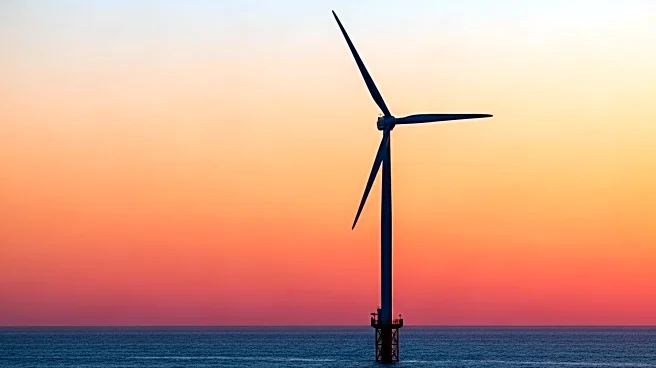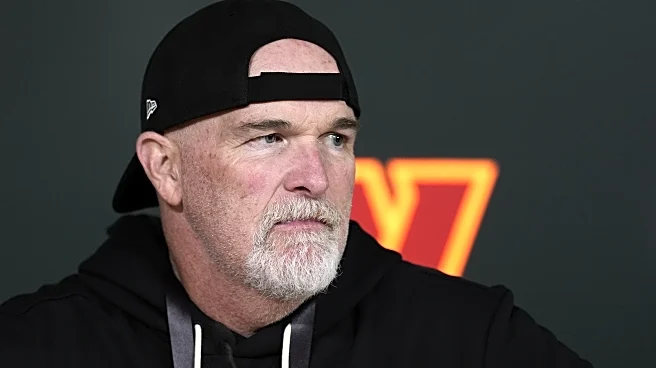What's Happening?
Co-op has entered into a seven-year Power Purchase Agreement (PPA) with RWE to source electricity from the Gwynt y Môr offshore wind farm located in the Irish Sea off the coast of North Wales. This agreement will provide Co-op with 33 gigawatt hours (GWh) of clean energy annually, sufficient to power approximately 140 Co-op food stores or 12,200 homes. The renewable electricity will support the energy needs of Co-op's food stores, distribution centers, and funeralcare sites across the UK. Heather Thomas, Group Property & Sustainability Director at Co-op, emphasized the importance of tackling the climate crisis and enhancing national energy security through such initiatives. RWE, which operates the wind farm, expressed enthusiasm for the partnership, noting the growing interest in sustainable energy solutions within the UK retail sector.
Why It's Important?
This partnership is a significant step in Co-op's broader renewable energy strategy, which aims to achieve net zero across its operations by 2035 and its entire business by 2040. The agreement with RWE not only supports Co-op's sustainability goals but also contributes to national energy security by increasing the proportion of energy sourced from renewable sources. As businesses increasingly seek sustainable energy solutions, Co-op's initiative sets a precedent for other retailers to follow suit, potentially leading to a more sustainable retail sector. The move also aligns with Co-op's re-entry into the commercial energy market through its Co-op Power proposition, which assists businesses in procuring sustainable energy.
What's Next?
Co-op plans to continue expanding its renewable energy initiatives, including a solar panel installation at its largest depot in Biggleswade and a program to roll out solar panels across up to 700 sites over the next three years. Additionally, Co-op has launched a new solar farm in Cambridgeshire, enabled by a PPA signed in 2024. These efforts are part of Co-op's commitment to leveraging its expertise as a major energy user to aid other businesses in developing sustainable energy procurement strategies. As Co-op progresses towards its net zero targets, it is likely to explore further partnerships and innovations in renewable energy.
Beyond the Headlines
The partnership between Co-op and RWE highlights the ethical and environmental dimensions of corporate energy procurement strategies. By prioritizing renewable energy, Co-op is not only addressing climate change but also setting an example for ethical business practices in the retail sector. This approach may influence other companies to adopt similar strategies, potentially leading to a cultural shift towards sustainability in business operations. The long-term impact could include increased investment in renewable energy infrastructure and a reduction in carbon emissions across industries.










